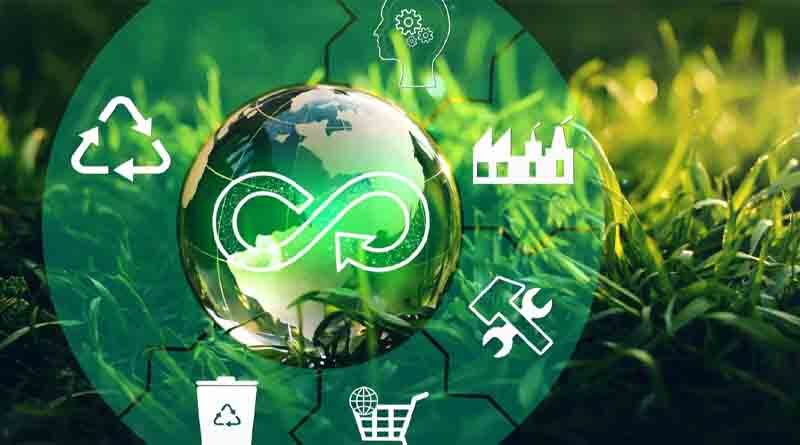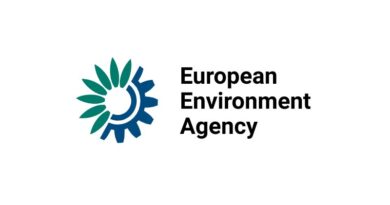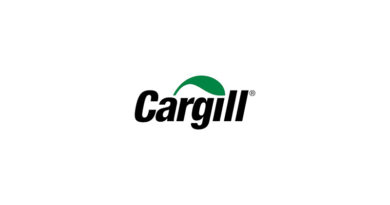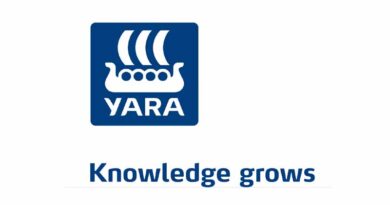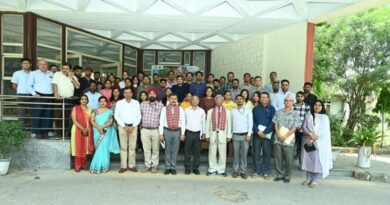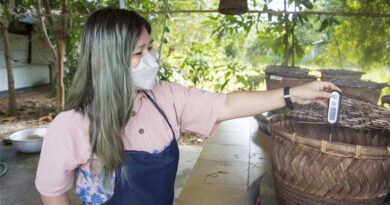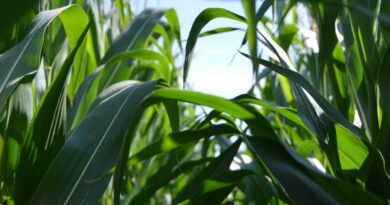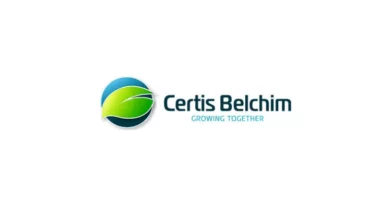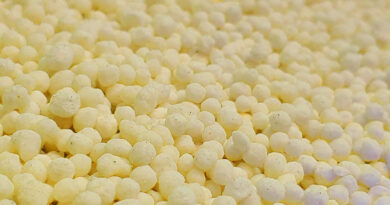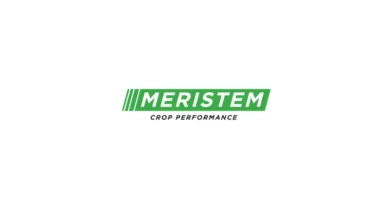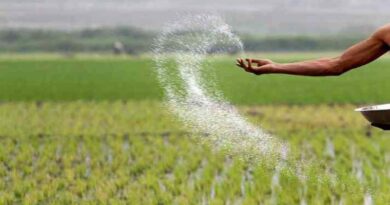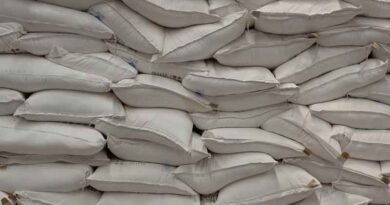ICL Promoting a Circular Economy
05 September 2022, Israel: The world population is estimated to reach 9.8 billion by 2050, a 2.2 billion increase from today with an almost proportional growth in waste to 3.4 billion tonnes. According to the Circularity Report 2022, only 8.6% of the World economy was circular in 2020.
The current paradigm of usage and waste is being replaced by disruptive ways to utilize existing materials and waste materials to create innovative usages that minimize waste and emissions, and prevent environmental damage.
Circular economies strive to minimize waste by transforming it into a valuable material in other processes and offer new ways to build a more sustainable future.
Today, organizations across the value chain endeavor to design products using disruptive technologies to improve product life including mechanisms for reusing, repairing, and remanufacturing.
Circular economy solutions can help shape a more sustainable future by lowering pollution, greenhouse gas emissions, and waste while also protecting biodiversity.
The goal of circularity is to extract as much value as possible from the resources and materials we use by putting back into the production systems everything related to manufacturing, distribution, use, and consumption.
Examples of a circular economy that we encounter on a day-to-day basis are the production of synthetic fabrics from recycled soda bottles and appliances that are designed to make their repair economically and practically feasible.
ICL and Circular Economy
ICL is at the forefront of circular economy projects that develop innovative methods of reducing and re-using waste materials that are produced as by-products of its various processes worldwide.
We asked Sharon Krumbein Rubin, Global Content and Communication Director to share with us ICL’s Circular Economy projects. Sharon tells us “our focus is on sustainable ecology and environmental projects in both production and operations, we’ve initiated new ventures and partnerships, ones that promote a change from linear production towards a circular economy.
To this end, the Rotem site opened a business division dedicated to researching and reimagining byproducts as valuable materials. ICL’s circular economy strategy invites us to challenge ourselves to identify the unique properties and potential uses of what we used to consider byproduct waste materials from production at Rotem so that we can use these materials to replace existing products or identify and develop new markets and applications for them.
Our methodology considers everything that goes into the production of ICL’s existing products, and all the valuable essential minerals contained in the byproducts, including fluorine, silica, sulfur, calcium carbonate, and calcium sulfate – materials that are in demand globally, and may be more affordable to extract from the byproducts than what’s available on the market.”
ICL Rotem- a Model for Global Circular Economy
For more than 60 years ICL’s subsidiary, ICL Rotem, has been surface mining phosphate in the Negev Desert and is home to ICL’s business unit focused on circular economy projects.
This focussed group has since identified opportunities by looking at common by-products of our processes and reimagining them as valuable starting materials or additives not just in existing processes and products, but as new materials in new products.
Our forward-thinking approach is examining the potential for the use of fluorine, silica, sulfur, calcium carbonate, and calcium sulfate by-products as materials for processes that are in global demand.
The Phosphate Divison produces several valuable products including phosphate rock, fertilizers, and green phosphoric acid in an environmentally responsible manner. One of these initiatives is to reclaim depleted mine blocks during mining operations
ICL Rotem is currently focused on three main byproducts:
Fluosilicic Acid — FSA, H2SiF6
FSA is a source of fluorine and silica and can be used as a substitute for fluorspar or other fluorine-based chemicals. This by-product could potentially meet 40% of the global requirements for fluorine-based chemicals. And all of this from an otherwise unused waste product.
This high purity FSA from Rotem is currently exported to Australia, Sweden, the USA, Chile, and Italy to be used in water fluoridation, metal cleaning, silicates, and aluminum industries.
Rotem is exploring additional uses in the wood preservation, concrete, and scale removal industries.
By utilizing fluorine-based mineralizers, the cement industry could potentially reduce its energy-intensive processes with a concomitant improvement in processing rates with decreased emissions.
Oil Shale Ash – SUNNY
Ancient animal, plant, and algal sources that formed fossil rocks are the sources of oil shale which is mined in the Negev in what was once a huge sea. This oil shale is combusted in the Rotem steam plant to produce electricity.
ICL has demonstrated the additional use of a porous stone residue by-product which is marketed as SUNNY.
SUNNY is a 100% natural product and is being used as an absorbent to mop up oil spills, cement manufacture, and as a bedding material. As a low-density, lightweight product, it has the capacity of absorbing 70-80% of its weight in oil and other spills requiring absorption.
It is also used as bedding in cat litter, cow-shed, and turkey farming industries due to its highly absorbent nature. ICL has ongoing research into additional applications of SUNNY in collaboration with other companies.
Phosphogypsum
As a by-product of phosphoric acid manufacture, ICL has accumulated some 30 million tons of this thus far, unutilized product. ICL is currently pioneering the use of phosphogypsum in the agricultural and construction industries.
Further investigations are underway using phosphogypsum with sand, ash, and cement to create novel products leveraging the strength and durability of the material which is not unlike conventional bedding materials.
An exciting new project with Israel’s Ministry of Transport and major engineering and construction companies is exploring the combination of phosphogypsum with oil shale ash as a filler in the transport infrastructure industry.
Other ICL Circular Economy Projects
ICL’s circular economy strategy has adopted a holistic approach where it strives to utilize the waste streams of sites in geographic proximity to each other which reduces waste and makes for more efficient manufacturing.
On a regional level, ICL has joined the Center for Resource Recovery and Recycling (CR3), which is a cooperative research center focused on helping industries to create a sustainable future.
Regionally, ICL is cooperating with other companies and industries in a collective effort to optimize resource utilization and waste reduction.
Other projects include the recycling of polystyrene fire retardant foams that contain HBCD ( hexabromocyclododecane). By removing the HBCD from the polystyrene foam, ICL makes the foam available as a raw material for new foam production.
Recycled phosphate is being used by ICL in the Netherlands to produce phosphate from waste streams. Phosphate is an essential nutrient in plant metabolism and is a finite resource, which if depleted, would have global consequences.
ICL is also increasing the impact of circular economy through a sustainable peat alternative called Fibagro Advance. Fibagro Advance uses waste wood and a thermo-mechanical process to develop a unique matrix, that improves moisture and nutrient retention.
The latest member of our circular economy projects is MagiK, a powerful organic multi-nutrient for crops. For a long time, magnesium by-products were disposed into a landfill at one of ICL sites until Dr. Khalil Abu Rabeah, ICL’s VP of R&D Commodity Fertilizers and Product Innovation, came up with the innovative idea of using the landfill’s unique compound to produce Granular MagiK.
These are examples of ICL’s commitment to contributing to a more sustainable future by utilizing by-products and waste to produce valuable materials to contribute to the circular economy.
Our Commitment as a Multinational Company
By embracing the concept of the circular economy, ICL is reducing its carbon footprint and extracting maximum value from its products and by-products with a resultant efficient use of resources, minimizing waste, and lowering environmental impact.
ICL is fully committed to the transformation of its linear operations into a circular economy.
Our commitment to this goal is demonstrated by the establishment of our dedicated business unit at Rotem which in addition to the examination of local and national opportunities, proactively researches markets Promoting circular economy at ICL Rotem.
As a company, we are committed to the reduction of our carbon footprint as well as the production of sustainable agricultural products to ensure global food security. We are at the forefront of the development of products for renewable energy storage and the recycling and novel use of waste stream by-products and the improvement of processes to be environmentally friendly and efficient.
Also Read: 2022 Norman Borlaug Award to Indian Scientist Dr. Mahalingam
(For Latest Agriculture News & Updates, follow Krishak Jagat on Google News)

